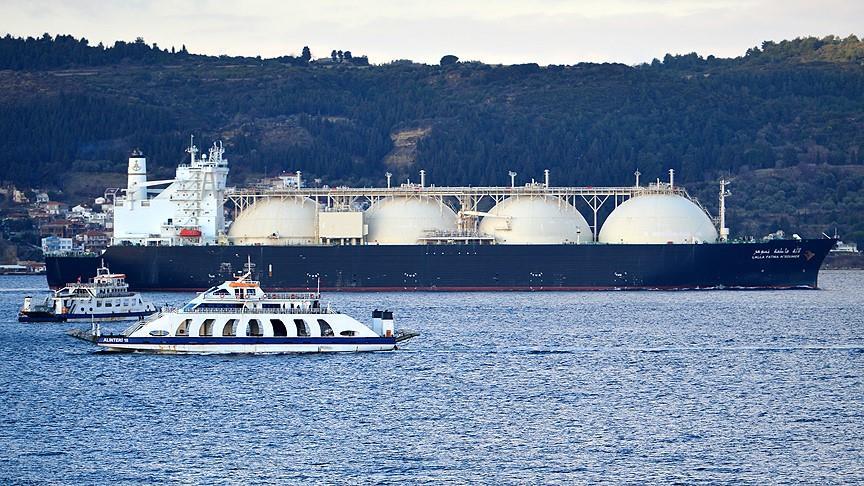LNG exports have been a topic of conversation in Russia since the 1970’s but it has not become a realistic prospect in Russia’s natural gas portfolio until the early 2000’s. Although companies such as Gazprom, Novatek, and Rosneft have been active in expanding gas projects throughout Russia, Gazprom failed in coordinating big engineering projects such as the Baltic LNG, the Sakhalin 2, and the Vladivostok LNG. This failure has also put Novatek to the forefront in recent years. Novatek’s impressive performance seen in the Yamal LNG project, despite U.S. sanctions and financial hurdles, is a sign that Novatek is set to become Russia’s new global LNG player in the years ahead.
Back in 2003, when Gazprom’s annual report projected supplying LNG to the U.S. gas market, in which a significant amount of time was devoted to developing the Shtokman LNG project for this purpose, the rise of shale gas in the U.S. along with the 2008 economic crisis resulted in the failure of Gazprom to fulfill these plans. The Baltic LNG project, first introduced in 2004, and which reached its final investment decision in 2007, shared the same faith as the Shtokman LNG. This was because of the combined effects of the shale boom and the economic downturn. Currently, the Baltic LNG project has been postponed until 2021.
In the following years from 2013 onwards, Gazprom introduced another project, the Vladivostok LNG project, which has now been indefinitely shelved. In the era of lower oil and gas prices and given the risks that Gazprom took with its LNG projects, it seems to be in Gazprom’s best interest to remain in its core pipeline business.
With the recent expansion of LNG around the world, Russia has fallen behind Australia, Qatar and the U.S. in securing a place in this niche market, revealing that in order to be a global gas player, it cannot be achieved without making significant improvements. As a number of markets cannot be reached by pipeline alone, Russia aspires to become an LNG player with the help of its vast natural gas reserves. Gazprom’s consistent disappointment in developing Russian LNG trade for over a decade has paved the way for structural changes to Gazprom. This became evident in recent years when President Vladimir Putin decided to break Gazprom’s monopoly on gas exports.
The decision to gradually loosening Gazprom’s monopoly over gas exports took effect when Novatek signed a deal with Gazprom to develop the Yamal LNG project. After just one year, Novatek decided to go it alone in developing the project in spite of the previous joint venture signed with Gazprom that held a majority 75 percent stake.
Since 2013, Novatek successfully managed to secure the necessary budget to finance the Yamal project by initiating a consortium working with TOTAL, CNPC and the Chinese Silk Fund. With a budget of almost $27 billion, the performance of Novatek’s Yamal LNG project has been impressive in not only securing financial support but in also gaining technical expertise.
Being a first of its kind, the Yamal LNG project necessitated tens of thousands of piles, liquefaction and storage equipment, a shipping port, an airport and LNG icebreaker tankers to operate inside the Arctic Circle. All these innovative technologies have contributed to the commerciality of the Yamal LNG project in a low-energy price environment.
Despite Gazprom’s aspirations to become a leading LNG provider to the global gas market, it has not received as much support as Novatek. The company benefits from various government assistance ranging from a 12-year mineral law extraction tax exemption to tax-free LNG exports. Such tax relief and financial benefits afforded to Novatek have not been made available to Gazprom. As a result, Russia’s Novatek sold the first of the Yamal LNG cargo in December 2017 to Malaysia’s state-owned Petronas. Through the accomplishment of launching the Yamal LNG terminal on schedule with secure financing, Novatek expanded the country’s presence in the global LNG market and met Russia’s aspiration of accessing markets that were unreachable via pipeline.
The current trajectory suggests that Novatek is set to become Russia’s LNG export champion in the years ahead as it further expands its market share and matures its LNG business. With the Yamal LNG project, Novatek proved its ability in meeting the demands of the world gas market and promises to eventually elevate Russia’s position to that of other major global LNG players. There is no doubt that Novatek needs to do much to secure a place in the world LNG market. However, the company’s achievement in keeping to the project timetable despite obstacles in financing the project in times of low oil and gas prices ensures that Russia’s place in the global LNG market in the future is looking more promising than ever before.


